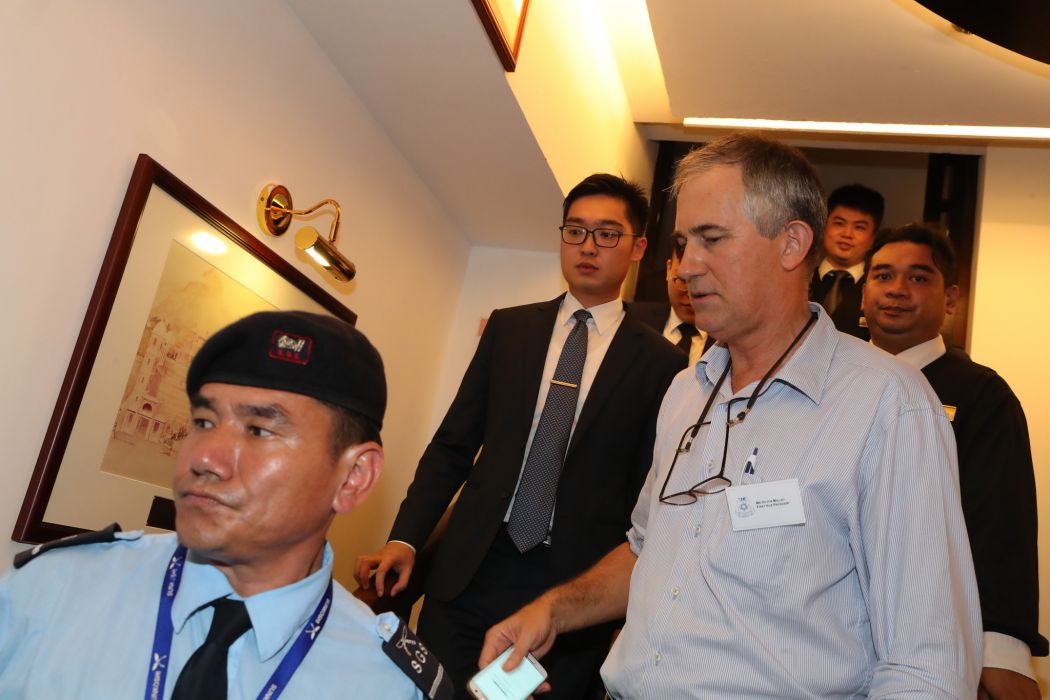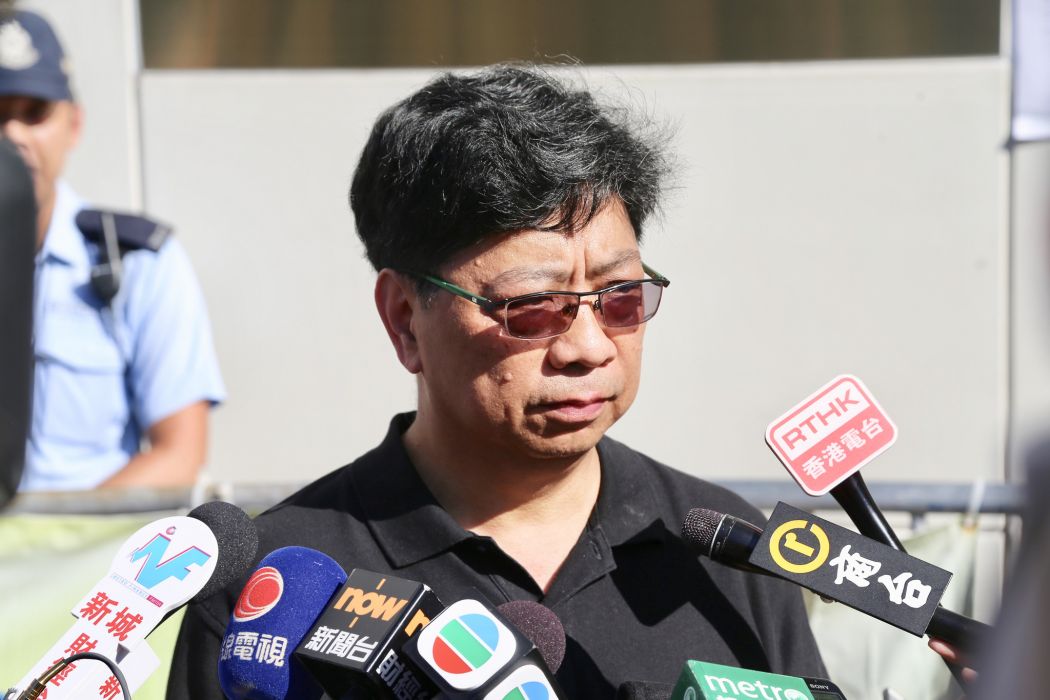Pro-democracy lawmaker Claudia Mo has said the Hong Kong government’s refusal to renew a work visa for the foreign press club’s vice president was “vindictive” and will harm Hong Kong’s reputation for having a free press.
Victor Mallet, the Financial Times’ (FT) Asia News Editor, has worked in Hong Kong since 2016, and served as the vice-president of the Foreign Correspondents’ Club since 2017. The FT said it was the first time it has encountered this situation in Hong Kong, and added that no reason has been given for the rejection.
Update: Press club criticises ‘rare and extraordinary’ gov’t bid to expel vice-president from Hong Kong
Mallet was the moderator of a talk by pro-independence activist Andy Chan at the FCC in August, which the office of China’s Ministry of Foreign Affairs in Hong Kong had tried to block.

Lawmaker Claudia Mo, the convener of the pro-democracy camp, told HKFP: “The Hong Kong government has clearly conducted a vindictive act against the host of the luncheon. It thought it must teach the person a lesson.”
“This harms Hong Kong’s freedom of the press… and personally, I think it is yet another proof of Hong Kong’s mainlandisation,” Mo, who is a former journalist, added.
In response to HKFP’s enquiries, the Immigration Department said it will not comment on individual cases.
Activist Andy Chan, speaking in a personal capacity, told HKFP: “This is clearly retaliation and it damages press freedom… Such behaviour will only prompt the US to put Hong Kong on its list of sanctions.”
Chan’s FCC talk was held after the police suggested banning Chan’s Hong Kong National Party. His speech was included by the police as additional evidence in their case against the party.

After the talk, Chan wrote to US President Donald Trump, calling for the US to suspend the differential treatment that the US grants to Hong Kong under the 1992 United States-Hong Kong Policy Act.
The Hong Kong National Party was officially banned last month by the government, which cited concerns over national security, public safety, public order, protection of freedom and the rights of others.
A UK Foreign and Commonwealth Office spokesperson said it was “concerned” by the rejection of Mallet’s visa renewal.
“We have asked the Hong Kong Government for an urgent explanation. Hong Kong’s high degree of autonomy and its press freedoms are central to its way of life, and must be fully respected,” a spokesperson said.
The Hong Kong Journalists Association said it was shocked and angered by the incident: “It makes people wonder whether it was retaliation.”
The Association said the denial of work visas to journalists was very rare: “Freedom of speech and press freedom are the foundations of Hong Kong’s success. The denial of [Mallet’s] visa will further harm press freedom and freedom of speech, and it will severely harm Hong Kong’s status as an international city.”

It urged the government to reconsider and explain the reason for the denial.
Press freedom watchdog Reporters Without Borders (RSF) urged the authorities to reverse their decision.
“This is clearly a form of retaliation for his involvement in the public talk organized in August by FCCHK, which angered Beijing by featuring a pro-Hong Kong independence activist,” said Cédric Alviani, director of the RSF East Asia Office.
“Such action is yet another proof that the Chinese authorities are extending their policy of intimidating foreign journalists to the territory of Hong Kong.”
